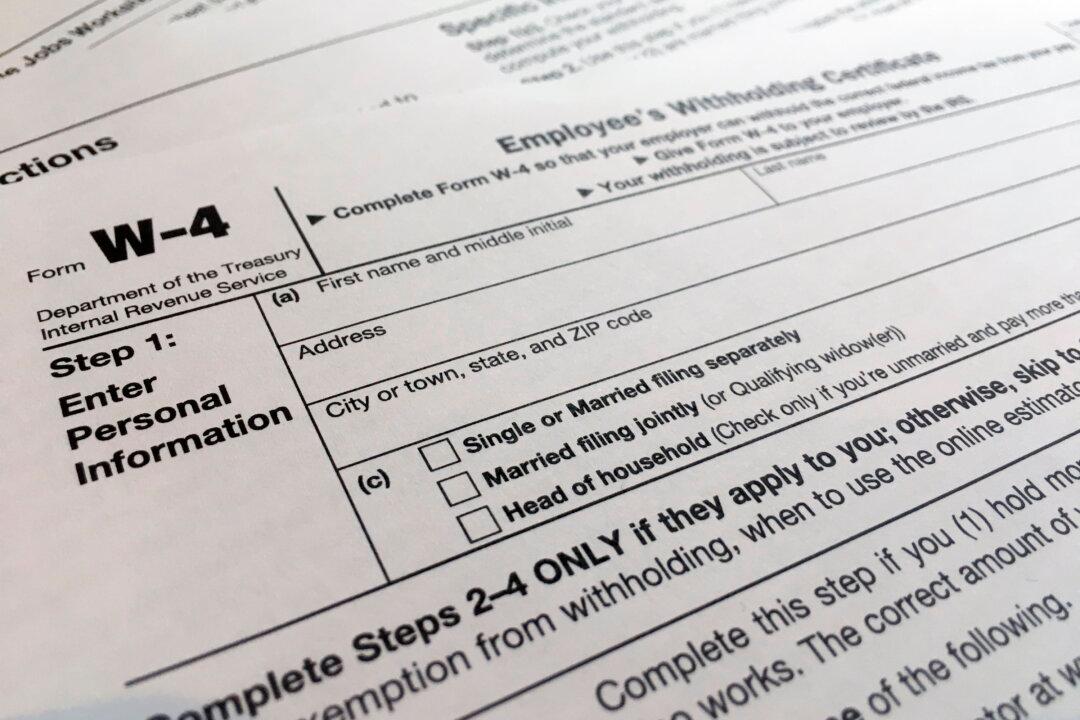A recent survey of taxpayers shows a large number of Americans anticipated a tax refund that is either the same size or larger than last year’s.
The survey, released by tax-preparing software firm TaxAct this month, showed that only about 30 percent of Americans anticipated “receiving less of a refund on their 2022 returns” despite recent warnings from the Internal Revenue Service and other tax experts. Another 24 percent said in the survey that they “don’t know what to expect.”





